Estimated Fees in India
₹ 500 to ₹ 600 per hour
Find Tabla Classes Fees in your locality
We are a set of music lovers who have come together to spread the magic of music. We want to provide a sound & steady platform for learning music, performing music and show casing art. Our aim is to become a modest music hub at south Bangalore. Towards that we have started conducting music classes, created a jam room for you to Jam and we have a small performance hall to conduct small events. We teach Guitar (standard, Bass & finger-style), Violin (Carnatic and Western style), Keyboard, Vocals (Carnatic, Hindustani & Western). In percussion instruments we teach Drums, Tabla, Mridangam, Chenda and Kanjira. We also teach specialised course like Music Production. We are planning to add other courses based on enquiries.
Anuradha Pals Tabla Academy (APTA) is an initiative for the promotion and preservation of Indian Music, by Sur and Saaz (SAS), an event company & Music label founded by world-renowned Tabla virtuoso and multi-percussionist, Pandita Anuradha Pal. A unique opportunity to learn and imbibe the tradition of Ustad Alla Rakha and Ustad Zakir Hussain of the Punjab Gharana, from one of their favourite and most brilliant disciples. We offer regular Tabla classes in Andheri West, Mumbai and online training on Skype. We also release special instructional video training DVDs, as part of the Learn Well Series, for Music students who wish to learn at their own pace, in the comfort of their homes.
Tablagyan - School of Music is a unique music school based in Bangalore, which focuses on imparting the knowledge of Music in general and Tabla and singing(Vocal) in particular. The school is a decade old now and has been a guiding light to many "musically hungry" students. The school has trained more than 150 students now, and currently has a strength of 60+. TablaGyan has not only catered to the musical needs of the locals, but also the foreign nationals, of which most are grooming into quality players. -Professional coaching from a well trained artist / teacher. -Music based coaching on Tabla. -Affiliated to music universities. Examination based coaching. -Dedicated individual attention given to students. -Active APP for school management for concert alerts, discussions etc. -Flexible timings. Scheduling based on one of its kind software.
I have been teaching the tabla at Saptak School of Music in Ahmedabad since 10 years. I also taught tabla at FLAME University in Pune for a year where my post was of an Assistant professor taking other courses in music along with tabla. I have taught tabla over skype and privately locally and continue to do so.
We offer Online & Offline - Hobby & Professional classes of Singing - Acoustic guitar - Bass guitar - Electric guitar - Ukulele - Drums - Keyboard - Piano - Music production - Western vocals - Hindustani vocal - Violin - Flute. We offer examination & certification also from international examination board. High experienced teachers teaches about: Learning,Arranging,Composing,Conducting and performing in Music. School invites students of age 5+ to have their musical life with practical and theory of music and teachers.
ActiFun Zone is a place where you can live your hobbies/dreams, which have left behind during our routine life... we provide all kinds of Music and Art classes including Guitar, Casio (KeyBoard), Vocal (Singing), Dholak, Tabla, Personality Development, English Speaking etc. All the teachers are professionally educated in the respective fields and have immense experience and knowledge of the related subject.
Post your Learning Need
Get customized quotes and responses from Tutors
Choose & Learn from Tutor of your choice
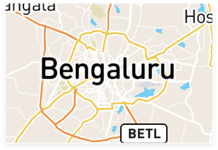
₹ 400 to ₹ 500
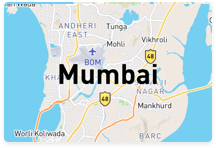
₹ 500 to ₹ 600

₹ 500 to ₹ 600
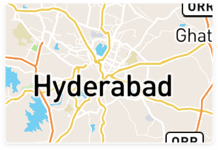
No data available
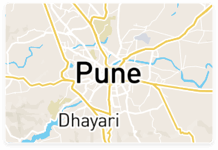
₹ 500 to ₹ 600
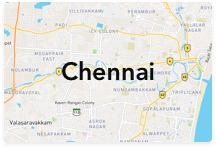
No data available
Answered on 30/08/2019 Learn Music/Instrumental Music/Indian Instrumental Music/Tabla

Atanu Bikash Kanjilal
Tabla Trainer
It totally depends on the intention of a student and from whom he wants to take a lesson. You have to select your Guru as per your need, level, practising eligibility. On this context, the fees are depending. It may defer from Guru to Guru as well as students.
From my side, I am taking Rs. 500/- per class in a week, i.e. four days in a month amounting Rs. 2000/-
Lesson Posted on 17 Jan Learn Music/Instrumental Music/Indian Instrumental Music/Tabla
Teentaal DhaDha tirkit Kayda with 3 palta & tihai

Shivam Kumar
Embark on a rhythmic journey into the world of tabla led by an experienced and accomplished musician...
Teenaal 👇
xDha Dhin Dhin Dha |
2Dha Dhin Dhin Dha|
0Dha Tin Tin Ta|
3Ta Dhin Dhin Dha|
Kayda in Teentaal 👇
xDha Dha Tir kit |
2Dha Dha Ti Na |
0Ta Ta Tir kit |
3Dha Dha Dhi Na |
Kayda in Dugun Laya👇
xDhaDha Tirkit DhaDha Tina |
2TaTa Tirkit DhaDha Dhina |
0DhaDha Tirkit DhaDha Tina |
3TaTa Tirkit Dha Dha Dhina |
Palta no-1 👇
xDhaDha Tirkit DhaDha Tirkit |
2DhaDha Tirkit DhaDha Tina |
0TaTa Tirkit TaTa Tirkit |
3DhaDha Tirkit DhaDha Dhina |
Palta no 2👇
xDhaDha DhaDha Tirkit Tirkit |
2DhaDha Tirkit DhaDha Tina |
0TaTa TaTa Tirkit Tirkit |
3DhaDha Tirkit DhaDha Dhina |
Palta no 3👇
xDhaDha DhaTir kitDha Tirkit |
2DhaDha Tirkit DhaDha Tina |
0TaTa TaTir kitTa Tirkit |
3DhaDha Tirkit DhaDha Dhina |
Tihai: 👇
xDhaDha Tirkit DhaDha Dhina|
2DhaS SS DhaDha Tirkit |
0DhaDha Dhina DhaS SS|
3DhaDha Tirkit DhaDha Dhina |
(xDha)
read lessLesson Posted on 17 Jan Learn Music/Instrumental Music/Indian Instrumental Music/Tabla
Teentaal DhaDha tirkit Kayda with 3 palta & tihai

Shivam Kumar
Embark on a rhythmic journey into the world of tabla led by an experienced and accomplished musician...
Teenaal 👇
xDha Dhin Dhin Dha |
2Dha Dhin Dhin Dha|
0Dha Tin Tin Ta|
3Ta Dhin Dhin Dha|
Kayda in Teentaal 👇
xDha Dha Tir kit |
2Dha Dha Ti Na |
0Ta Ta Tir kit |
3Dha Dha Dhi Na |
Kayda in Dugun Laya👇
xDhaDha Tirkit DhaDha Tina |
2TaTa Tirkit DhaDha Dhina |
0DhaDha Tirkit DhaDha Tina |
3TaTa Tirkit Dha Dha Dhina |
Palta no-1 👇
xDhaDha Tirkit DhaDha Tirkit |
2DhaDha Tirkit DhaDha Tina |
0TaTa Tirkit TaTa Tirkit |
3DhaDha Tirkit DhaDha Dhina |
Palta no 2👇
xDhaDha DhaDha Tirkit Tirkit |
2DhaDha Tirkit DhaDha Tina |
0TaTa TaTa Tirkit Tirkit |
3DhaDha Tirkit DhaDha Dhina |
Palta no 3👇
xDhaDha DhaTir kitDha Tirkit |
2DhaDha Tirkit DhaDha Tina |
0TaTa TaTir kitTa Tirkit |
3DhaDha Tirkit DhaDha Dhina |
Tihai: 👇
xDhaDha Tirkit DhaDha Dhina|
2DhaS SS DhaDha Tirkit |
0DhaDha Dhina DhaS SS|
3DhaDha Tirkit DhaDha Dhina |
(xDha)
read lessHave a question about Tabla Classes Fees? Ask your question and get answers from top Tutors.
Create your FREE UrbanPro profile and grow your income!
Find best tutors for Tabla Classes by posting a requirement.

Get started now, by booking a Free Demo Class